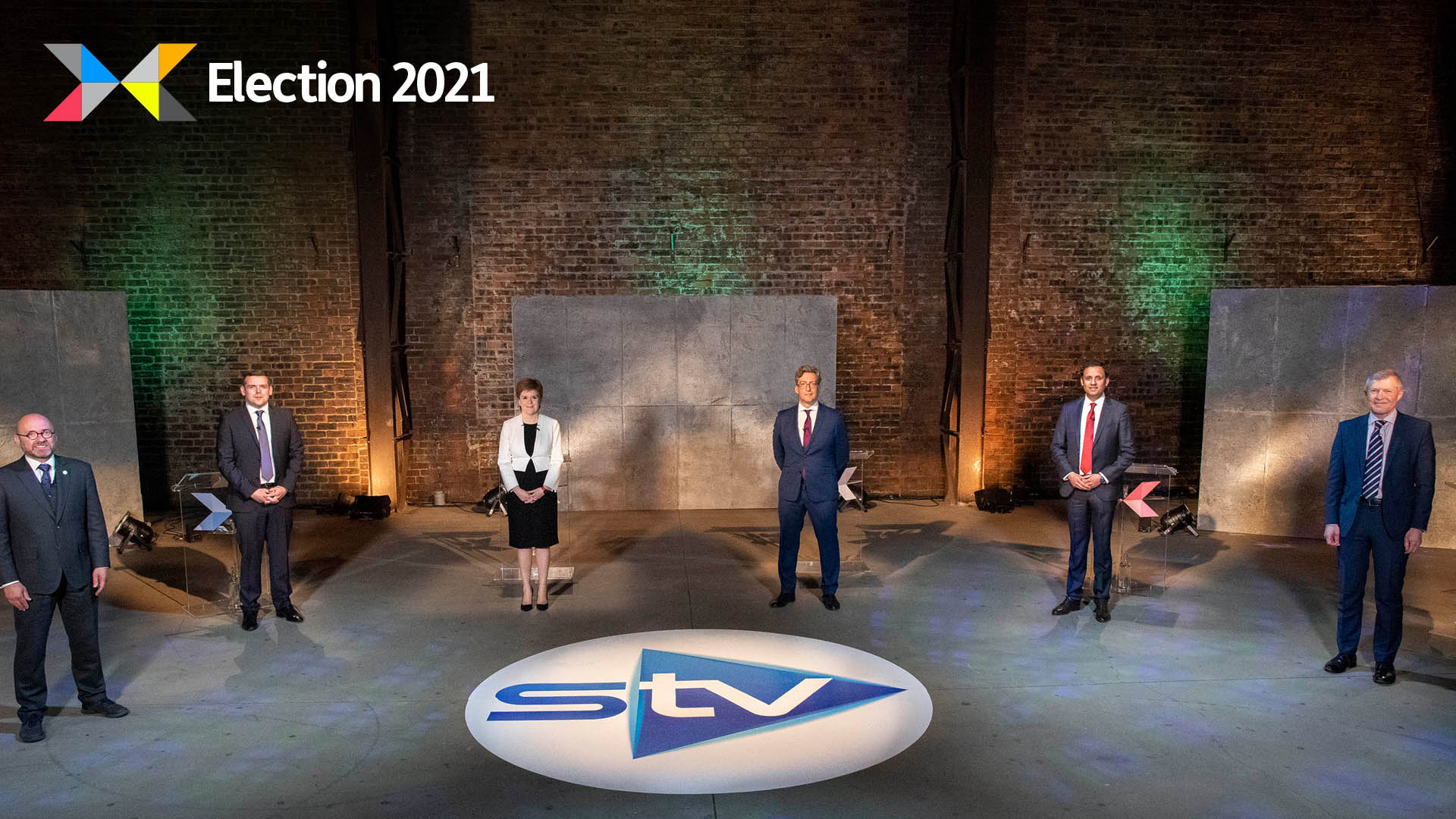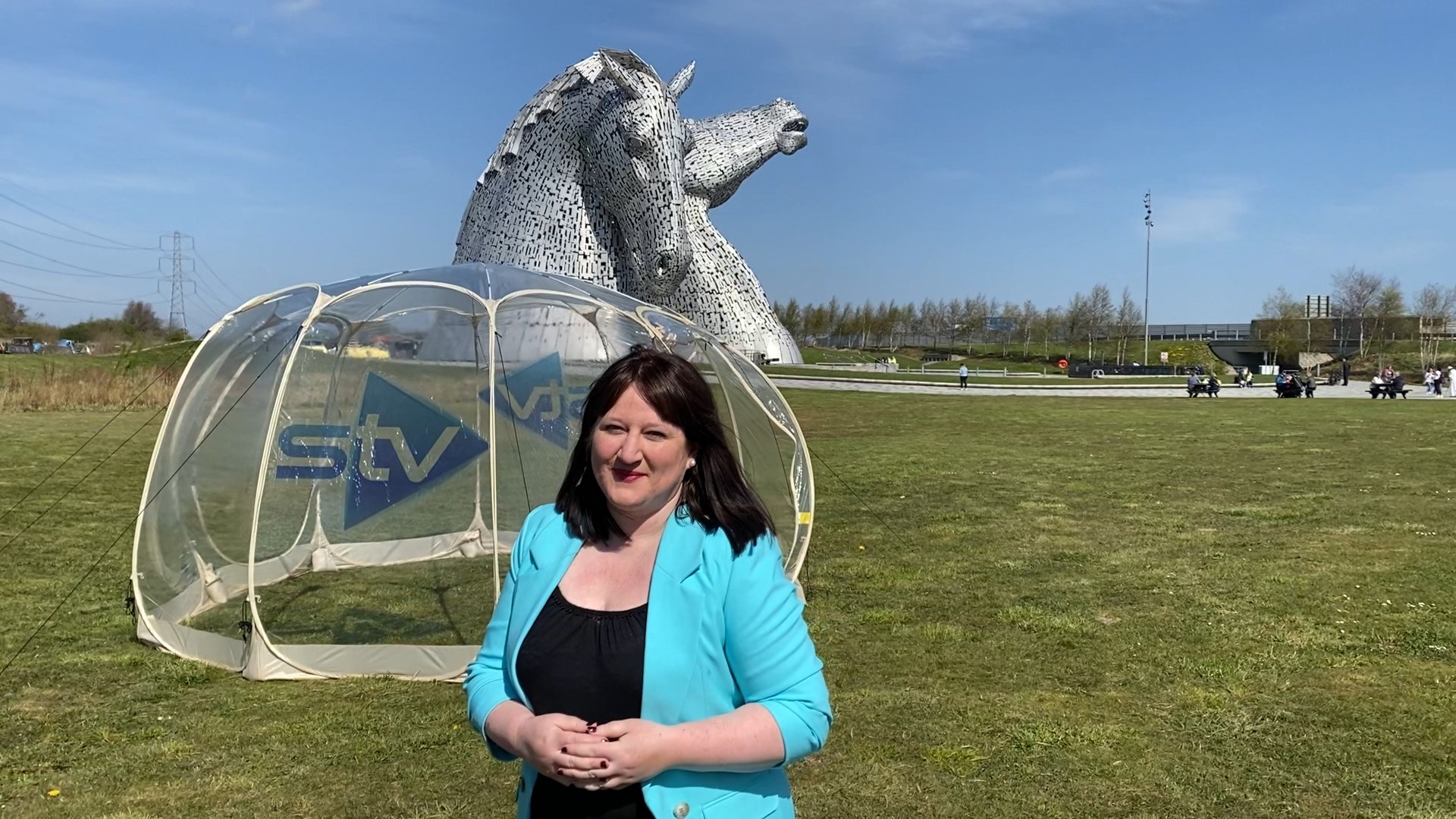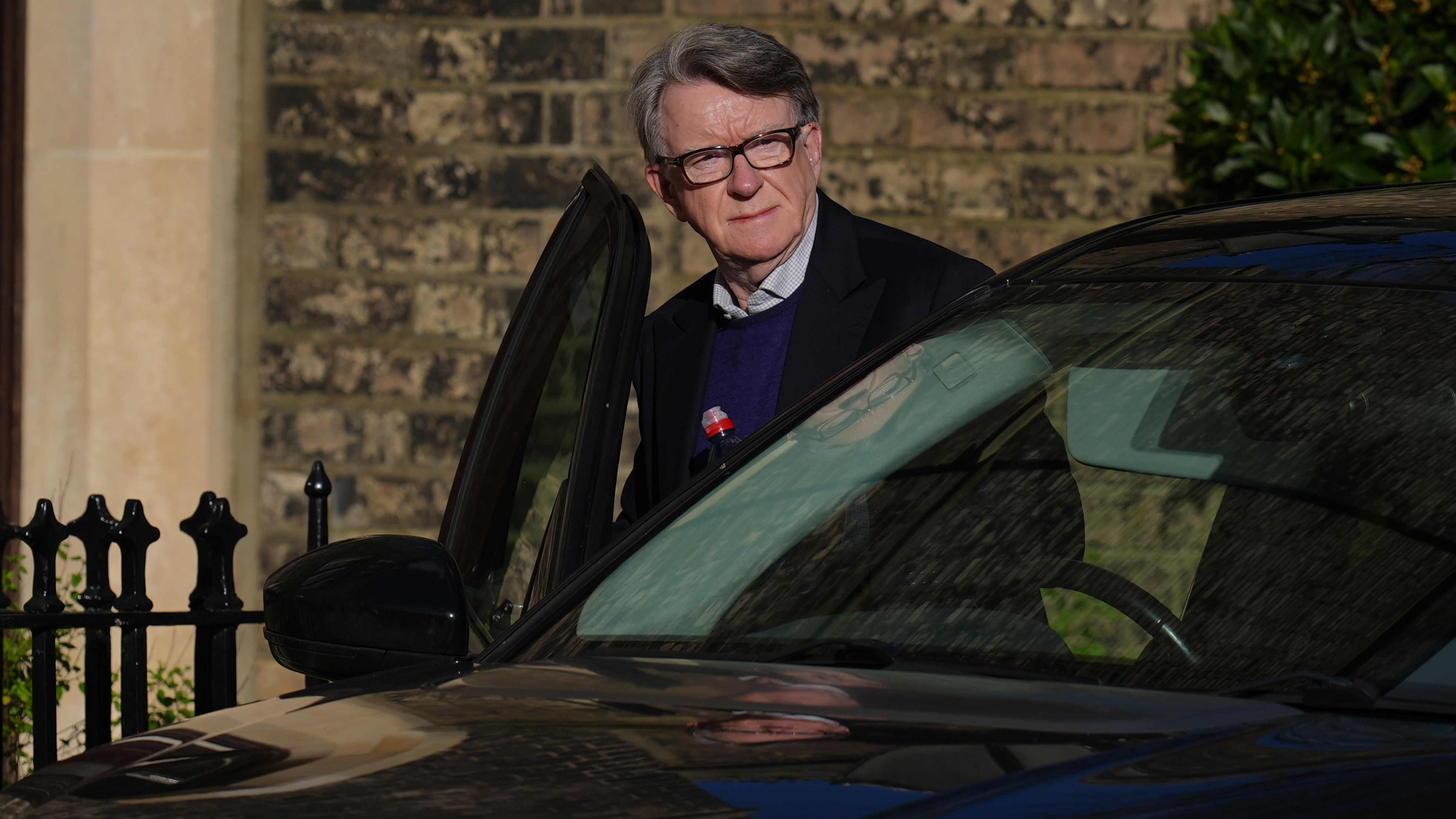In this surreal election even the polls have failed to excite. Normally a ‘rogue’ survey of opinion, one that is out of kilter with established trends can inject some momentary excitement and passing nervousness in party campaign chiefs.
But not at this election.
Today’s Ipsos MORI poll for STV News, although showing movement from the corresponding poll of a month ago, doesn’t do anything to recast a narrative about this election that was established well before it was called.
In short, the SNP will win this election, according to our poll, and in all likelihood will win enough seats to claim an outright majority. The Tories will hold on to second place, according to our findings, and the Scottish Greens are in for a record haul of seats with Alex Salmond’s Alba Party failing to win anything.
 STV
STVOther polls of recent days have cast doubt on the SNP winning an overall majority but none dispute that they are way out in front. Given the margin of error in polls, an overall majority is not certain and is the only question mark hanging over the party of government.
Even if the SNP fail to hit the 65-seat mark (this poll suggests they will get 68 seats), the Scottish Greens could pick up as many as 11 seats, ensuring there is a comfortable pro-independence majority at Holyrood.
If the SNP need Green votes then the smaller party would be in a strong position to start playing hardball in key policy areas. I’m sure the expectation of Green activists is that the party is demonstrably seen to be calling some of the shots, conscious of the charge made against them that they are the SNPs ‘little helpers’.
Our seat projection is that the Tories, Labour and the Liberal Democrats will actually lose ground at this election. Given the potential margin of error in the polls I would treat these predictions more cautiously for a number of reasons.
Take the Liberal Democrats, for example. Their vote share has been relatively low in most polls. In a whole swathe of seats they struggle. Historically, though, they are good at targeting key areas to deliver local victories. Polls measure national share, not what is happening in individual seats.
In addition, our projection of seats assumes a nationally uniform pattern of electoral behaviour. That is to say what happens in one seat will be replicated in every other seat in broadly the same way. Polls and seat projections do not take into account local circumstances and the sensitivity for tactical voting, so it is unlikely it is 100% on the money.
 STV News
STV NewsThe poll also suggests that the Conservatives will hold on to second place. If that transpires, it will come as a relief to Douglas Ross. Many commentators judge that he has had a poor campaign, which hasn’t been helped by the daily drip-drip of revelations about the Prime Minister’s funding of his interior design tastes. That being said, our seat projector suggests the Tories will lose ground compared to five years ago in an echo of lost seats at the 2019 UK general election.
Those same commentators have viewed Anas Sarwar’s performance positively. His own poll ratings are good, hence some of the party’s campaign material which now refers to Anas Sarwar’s Scottish Labour Party. As he is only in post, even a poor result for Labour will not start any whispers about his leadership, although losing further ground just makes the long-term challenges all the more daunting.
It is difficult to see any meaningful breakthrough for Labour so long as politics travels along tramlines defined by the constitution. For Labour to be on the move, support for the SNP has to be falling in a material way and there is simply no evidence to suggest this is the case.
Another factor which slightly complicates matters is the number of voters who might switch their vote on the day. 12% may change their mind before casting their constituency vote and 14% on the regional list vote. Labour voters are more likely to switch, according to our poll, in a finding that suggests their vote is ‘soft’ in comparison to that of the other parties.
Support for Alba is actually down in our poll. 2% this month as compared to 3% last month in a finding that suggests they will not win a single seat. Launching a party on the eve of an election in the hope that Alex Salmond’s status would propel it forward was always going to be a big ask, especially when Salmond’s own approval ratings are very poor.
Our poll suggests the nation is split down the middle on independence (50-50). Other polls in recent weeks have seen support for independence fall back after a long run of polls giving it a lead. In a sense it tells us that the split of 2014 has not gone away, Scotland remains polarised although the exact nature of the split (55-45 in 2014) has probably changed.
Interviews for our poll were conducted between April 30 and May 3, so the views represent a snapshot of opinion in that period. There is nothing material that has happened in the last 48 hours to suggest that the findings are out of date.
Last night’s BBC leaders’ debate is unlikely to have changed much as it was a 70-minute rehash of largely familiar lines and where the ‘debate’ was effectively strangled by the format, not helped by some odd editorial choices in questions.
It is now almost over bar the voting. The real excitement, I suggest, will not come with the counting of votes but with the aftermath and an expected crisis between Holyrood and Westminster, when in the post-Covid recovery period, constitutional politics reaches boiling point once again.


























